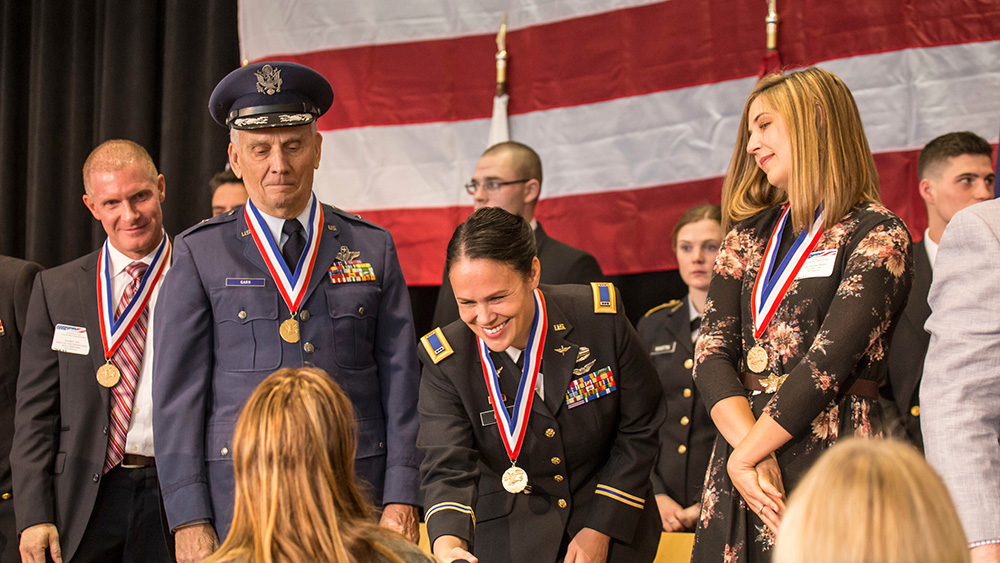
ORDITH W. BORGEOUS
« Back to Honorees
At the age of 17 and at the beginning of his Senior year of high school, Ordith Bourgeous found himself assigned to the 8th Air Force, 561st Bomb Squadron at Kimbolton, England. He was trained as a gunner aboard a B-17 Flying Fortress in both California and Nevada. He was a waist gunner and a tail gunner, only avoiding the ball turret because he was too tall.
During World War II, the 8th Air Force was stationed in England and tasked with flying bombers over Nazi-occupied Europe. Bourgeous recalls saying from the tail gunner position, “I can see four aircraft going down behind us!” It was astonishing his aircraft managed to stay aloft riddled with so much damage. Shrapnel from the exploding anti-aircraft shells punched through the thin skin of the B-17 and ricocheted throughout the aircraft. Planes would lose fuel, forcing them to land at various airfields hoping they were friendly. He recalls landing at an unknown airfield where they were required to sleep in the plane, keep silent, with no lights all night. The B-17s were well engineered, allowing them to stay in the air with only one working engine, but flying “low and slow” made them easy targets. After one mission, 102 holes were counted in Bourgeous’s B-17, yet the plane arrived back to base with several wounded, but all crew members were alive.
Before the war was over, Bourgeous completed 26 bombing missions over more than five cities in Germany. The missions were terrifying; watching other planes explode in mid-air or spin down to the ground, wondering if your own plane was next. When asked how he controlled his fear on the missions, he answered, “I don’t know. I just did.”
While on the way to Prague, Bourgeous heard the announcement that Nazi Germany had surrendered. With this new development, they turned around and headed back to Kimbolton. He returned to the U.S. and was re-trained to fight the Japanese in a B-29 Superfortress. After the atomic bombing of two cities in Japan and then Japan’s surrender, he found himself being discharged and returning home. When asked to reflect on his wartime service he said, “It was a very important job to get done. We simply had to win that war.”

